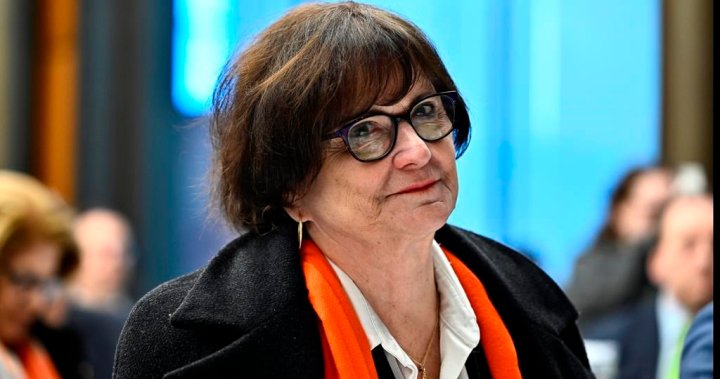
A year ago, the Conference on Jewish Material Claims Against Germany published what it called an “unprecedented” demographic study on Holocaust survivors, reporting about 245,000 people who had survived it were still alive. Almost half of those lived in Israel, and more than one-in-six lived in the United States. At that time there were 5,800 survivors living in Canada.Most of the survivors are now over the age of 90.The Auschwitz museum has reported it expects about 50 survivors to attend the ceremony Monday.Lyons last visited Auschwitz in May 2024 as part of the annual March of the Living. It’s an event focused on studying the Holocaust and the roots of intolerance and hatred.“I know how disturbing it is to be on that ground where so many suffered so severely and so many died,” she said.“But it’s also to some extent an honour to be there to represent Canada and to represent the Jewish community.”Lyons will be in attendance at the event in Poland Monday alongside Prime Minister Justin Trudeau. She said Canadian Holocaust survivors will also be in attendance.Leger and the Association of Canadian Studies also released a survey conducted this month looking at where Canadians are getting information about the Holocaust.The survey, conducted between Jan. 17 and 19, involved 1,578 Canadians.In that survey, 22 per cent of Canadians under the age of 25 cited online sources as their primary source of information on the Holocaust, more than any other age group.Films and documentaries were the most common primary information source choice across all age brackets, cited by 34 per cent of all respondents.Lyons said she was encouraged by the fact that the poll reported 46 per cent of all respondents said they were interested in learning more about the Holocaust, with the highest interest reported among younger age cohorts.“So we have got to look at ways in which we can help people get the story of the Holocaust, even if it is not from a lived experience,” she said.Lyons pointed to a five-year, $5 million fund the government launched in December to help promote Holocaust education.“Whether we’re doing it as a public education, whether we’re doing it in the more formal school system, whether we’re doing it through films and lectures or music or art, but getting the story out there in a way that people can relate to through their own humanity, their own humanness,” she said.Lyons said that human connection is key to educating younger generations about an act of genocide that killed more than 6 million Jews.“What is so compelling and intensely disturbing about the Holocaust is that it happened over days, over weeks, over months, over years of planning. Of humans planning the deaths of others, of putting in place systems, infrastructure to basically treat human beings like we would cattle,” Lyons said.“It is an incredibly fascinating and upsetting story about how we lose our humanity in the midst and depth of hatred. So I think we owe it to our young people to find new and different ways of ensuring that they’re hearing about the Holocaust as a means of their own learning, of their own enrichment as a human being.”This report by The Canadian Press was first published Jan. 26, 2025.
© 2025 The Canadian Press




